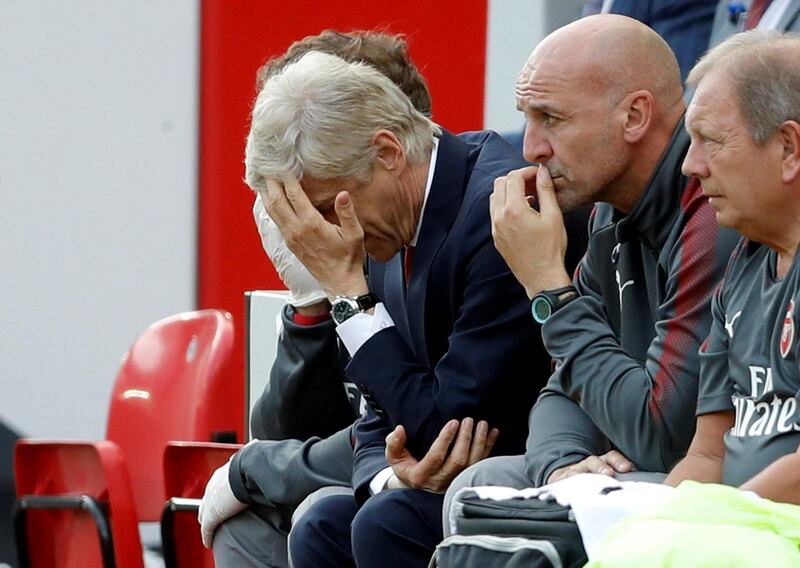The question of the succession is a constant plotline towards the end of a long reign. Rewind a few years and Jurgen Klopp appeared Arsene Wenger’s likeliest heir. The glimpses of an alternative future should only make Arsenal more envious, and not merely because Liverpool have dominated their meetings since the German’s eventual arrival in England.
Sunday's 4-0 demolition job extended Klopp's haul to 10 points and 14 goals in those four games but the significance does not even lie in the numbers. Liverpool have the sort of unity and optimism Arsenal used to exude. They play with cohesion and spirit. They feel a forward-thinking club.
Players improve under Klopp; too few have recently under Wenger. Those with most ambition, such as Alexis Sanchez and Alex Oxlade-Chamberlain, eye the exit. Whereas, on such heady occasions, Liverpool feel as if they are on the up, Arsenal seem trapped in a tragicomic stasis, where history repeats itself; ever more agonisingly, ever more predictably.
It is fair to note that it is only three months since they lifted the FA Cup, only three weeks since they won the Community Shield, only 10 days since they were on a run of 11 victories in 12 matches.
But the thrashing at Anfield showed how quickly everything can unravel. This was a revival built on sand. Arsenal were plunged back into the infighting of spring. Fans called for Wenger’s head. Pundits and former players competed to find ever more original, ever more scathing criticisms. It was an action replay but with the vocabulary and the emotions exaggerated.
It was tempting to go back to April when chief executive Ivan Gazidis said Wenger had to be a “catalyst for change” if he stayed. Instead, with a new two-year contract, he has looked a catalyst for the wrong sort of continuity. The only element of novelty came in the omission of Alexandre Lacazette, a £53 million (Dh251m) forward, for the impotent Danny Welbeck.
Otherwise, the same issues recurred: Arsenal’s reluctance to sack Wenger, an away record which has now stretched to nine defeats in 14 away games, the enigma that is Granit Xhaka, the defensive midfielder who does not protect the defence, the enigma that is Aaron Ramsey, the central midfielder forever caught ahead of the ball, the enigma that is Mesut Ozil, the world-class player who becomes a passenger out of possession. As his teammates chased shadows, Ozil took a leisurely stroll after them.
There was the tactical naivety. Four days earlier, Hoffenheim made the mistake of turning up at Anfield and playing three at the back against Liverpool's devastating front three. Arsenal duly repeated it. Both switched to a four, but only after the damage was done.
And it illustrated that the spring switch in system was not transformative, but deceptive. Wenger’s back three was never configured as cleverly as Antonio Conte’s. A different shape suited some players, but Arsenal had neither organisation nor resolve at Anfield.
The winning run produced impressive statistics. This season has brought less flattering numbers. Only West Ham United have conceded more goals than Arsenal. They are already six points behind Manchester United; but for a late rescue job against Leicester City, they could have no points from a possible nine.
- Team of the week: Liverpool well represented after demolishing Arsenal
They may have been unfortunate at Stoke City, but Wenger accepted their display at Anfield was unacceptable. He was commendably candid, just he was after 2011's 8-2 defeat at Old Trafford. Some defeats are so chastening that there is no point attempting excuses. He proved dignified in defeat.
But there is something desperately sad about seeing a great being humiliated, especially when it has happened too often. Think of the 6-0 hammering at Chelsea. Or, indeed, a 5-1 loss at Liverpool in 2014. This was nothing new.
It explained why some of those who oppose Wenger’s continued management do so out of a desire for something – anything – different. Instead, Arsenal have the opposite of change: the paradoxical problem is it both stays the same and gets worse.






